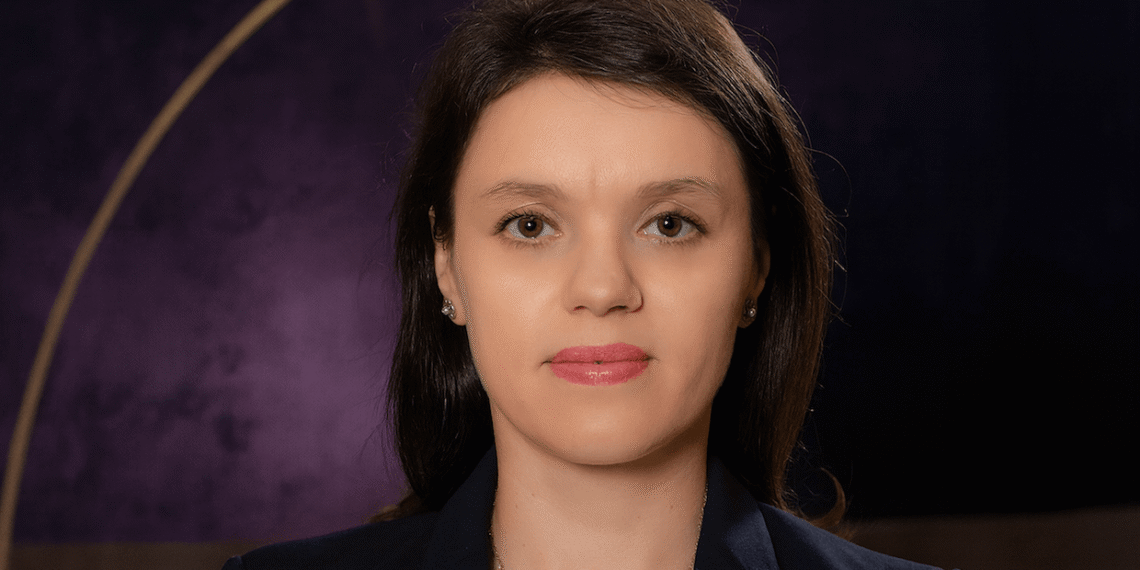Moldova’s 2025 parliamentary elections mark a pivotal moment in the geopolitical tug-of-war between the European Union and Russia. Despite unprecedented hybrid interference—including disinformation, illicit financing, and the use of new technologies—the pro-European Party of Action and Solidarity (PAS) secured a decisive victory. Dr. Ecaterina Locoman cautions, however, that this success is “more of a temporary setback” for Moscow than a strategic defeat: “Russia will gather its resources again.” In this interview with ECPS, Dr. Locoman analyzes Moldova’s evolving democratic resilience, the adaptive strategies of Russian influence, the role of the diaspora, and the country’s ambitious EU accession goal. She underscores the importance of sustained domestic reform and Western engagement to keep Moldova on its “irreversible European path.”
Interview by Selcuk Gultasli
Moldova’s 2025 parliamentary elections have emerged as a pivotal moment in the geopolitical contest between the European Union and Russia. Against a backdrop of unprecedented hybrid interference—including disinformation campaigns, illicit financing, and the use of new technologies—Moldova’s pro-European Party of Action and Solidarity (PAS) secured a decisive victory. Yet, as Dr. Ecaterina Locoman cautions in this interview with the European Center for Populism Studies (ECPS), this success must be understood as both real and fragile: “I expect that Russia will continue to influence domestic politics. It’s part of their strategic goal to regain control over the post-Soviet region, and I don’t think this should be read as a strategic loss. It’s more of a temporary setback, but they will gather their resources again.”
Dr. Locoman, Senior Lecturer at the Lauder Institute and in the Department of Political Science at the University of Pennsylvania, situates Moldova’s electoral resilience within a hybrid framework of domestic determination and external support. “We can interpret the results of the Moldovan elections as a hybrid outcome. On the one hand, they reflect a strong domestic effort—both from political institutions and voters—who showed remarkable resilience in the face of Russian interference and influence. On the other hand, it is also clear that without the support of Western partners, especially the European Union, this success would not have been possible. So, it’s both a domestic and international story.”
This resilience was manifested not only through institutional preparedness—such as stronger oversight of illicit financing and disinformation—but also through robust diaspora engagement and sustained voter mobilization. “The numbers show that 280,000 Moldovans abroad voted in the elections,” Dr. Locoman notes, highlighting how mail ballots and close transnational ties helped bolster the pro-EU vote. She underscores that “the diaspora is relatively young… they maintain very strong links to Moldovan politics and what is happening at home.”
At the same time, Moscow’s influence tactics are evolving. Russia experimented with “the use of AI and alternative financial methods, like cryptocurrency,” to obscure financial flows and spread propaganda. While these efforts ultimately proved less effective this cycle, Dr. Locoman warns against complacency: “Moscow is one of the best students of the post-Soviet region… they will learn from their own mistakes and improve their strategies in the next elections. This fight needs to continue.”
Looking ahead, Moldova’s ambition to join the European Union by 2030 faces both internal and external hurdles. Domestically, slow reforms, corruption, and economic vulnerabilities remain pressing concerns. Externally, geopolitical vetoes—most notably from Hungary—could obstruct accession negotiations. “I have some doubts—not fear, but doubts—about how quickly the situation can move by 2030,” Dr. Locoman admits. Yet she also maintains a note of cautious optimism: “Up until 2022, Moldova had been knocking on the EU’s doors for more than 30 years… and then, in the end, it happened.”
In this interview, Dr. Locoman offers a nuanced analysis of Moldova’s evolving democratic landscape, the adaptive strategies of Russian influence, and the strategic choices facing both Moldovan and European leaders in the years to come.
Here is the transcript of our interview with Dr. Ecaterina Locoman, lightly edited for clarity and readability.
Resilience at Home, Support Abroad
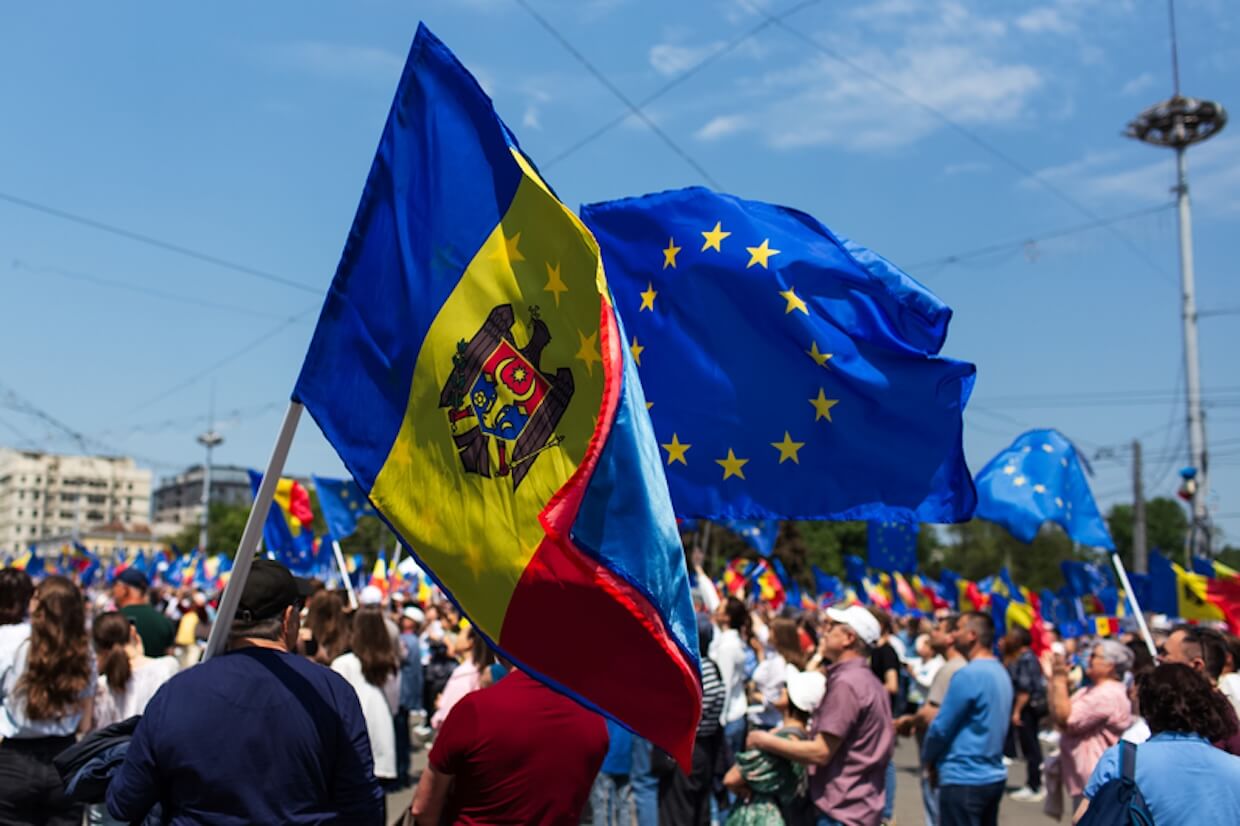
Dr. Ecaterina Locoman, thank you very much for joining our interview series. Let me start right away with the first question: Moldova’s parliamentary elections delivered a decisive victory for the ruling pro-European Union PAS despite unprecedented Russian interference. Should we interpret this outcome as a durable consolidation of democratic resilience, or as a contingent success heavily dependent on extraordinary EU and Western support?
Dr. Ecaterina Locoman: Thank you very much for having me. It’s a pleasure to be here. I think we can interpret the results of the Moldovan elections as a hybrid outcome. On the one hand, they reflect a strong domestic effort—both from political institutions and voters—who showed remarkable resilience in the face of Russian interference and influence. On the other hand, it is also clear that without the support of Western partners, especially the European Union, this success would not have been possible. So, it’s both a domestic and international story.
Importantly, if we look back at the 2024 presidential elections and now the 2025 parliamentary elections, voters have chosen a similar direction. This indicates that democracy in Moldova, while perhaps not as strong or stable as one might wish, is nonetheless evolving. Moldovans and their institutions are working every day to strengthen it. We saw a high degree of voter mobilization despite significant Russian efforts, including disinformation campaigns, cyberattacks, and illicit financing. Voter turnout was relatively high at 52%, demonstrating strong civic engagement.
Compared to the 2024 presidential elections, domestic institutions such as the prosecutor’s office and the police clearly learned from past mistakes. They were better prepared to identify and address unlawful use of illicit funding and electoral violations. This helped build voter confidence in the electoral process. As in previous elections, diaspora engagement was also very strong, further contributing to democratic resilience. Overall, these factors point to an increased resilience among Moldovans in defending their democratic process.
Pro-Russian Messages Losing Ground
To what extent do the results reflect a deepening societal commitment to a pro-European orientation, as opposed to a rejection of entrenched pro-Russian elites such as Igor Dodon and his allies, whose populist appeals often fuse anti-elite rhetoric with civilizational tropes about Russia as Moldova’s “natural” ally?
Dr. Ecaterina Locoman: That’s a very good question. The results show that, again, the recent election, as well as those in 2024 and 2021, reflect a continuing trend that society as a whole is more or less committed to a pro-Western orientation. I travel to Moldova on a yearly basis, and I can see that the country has changed significantly in recent years since Maia Sandu became president. There is a very clear pro-European trend. That said, it’s true that we don’t have precise data on how many Moldovans live abroad. Every summer, many of them return, and perhaps my impression of the country is somewhat skewed because I visit during that period when a lot of diaspora members are back home. Still, the spirit in the country is very much pro-European.
It’s also true that there have been numerous reports on this topic. I have studied how both Russia and the West try to influence domestic politics in post-Soviet states, and my research shows that Russia has long been grooming local political actors in countries such as Ukraine, Moldova, Georgia, and Armenia. The fact that they were able to attract and cultivate specific types of political figures—such as Igor Dodon, for example, a former president of Moldova who now enjoys little popularity among large segments of the electorate—indicates that Moldovans are increasingly able to distinguish between leaders who genuinely seek to build a democratic, secure, and prosperous future for the country and those who do not.
Pro-Russian actors have not been particularly original or creative in how they promote their message. This message is losing ground, especially because of the war in Ukraine. It is no longer easy to “sell” this narrative. Previously, Moldovan politics often involved strategic shifts between Russia and the West, depending on which side best served domestic interests. Today, this approach is much harder to sustain. The war raging in neighboring Ukraine has made people more aware of the stakes, and Moldova has received a significant number of Ukrainian refugees. As a result, it has become much more difficult for pro-Russian parties to sell their message as effectively as before.
A Blessing in Disguise: Russia’s Unintended Push
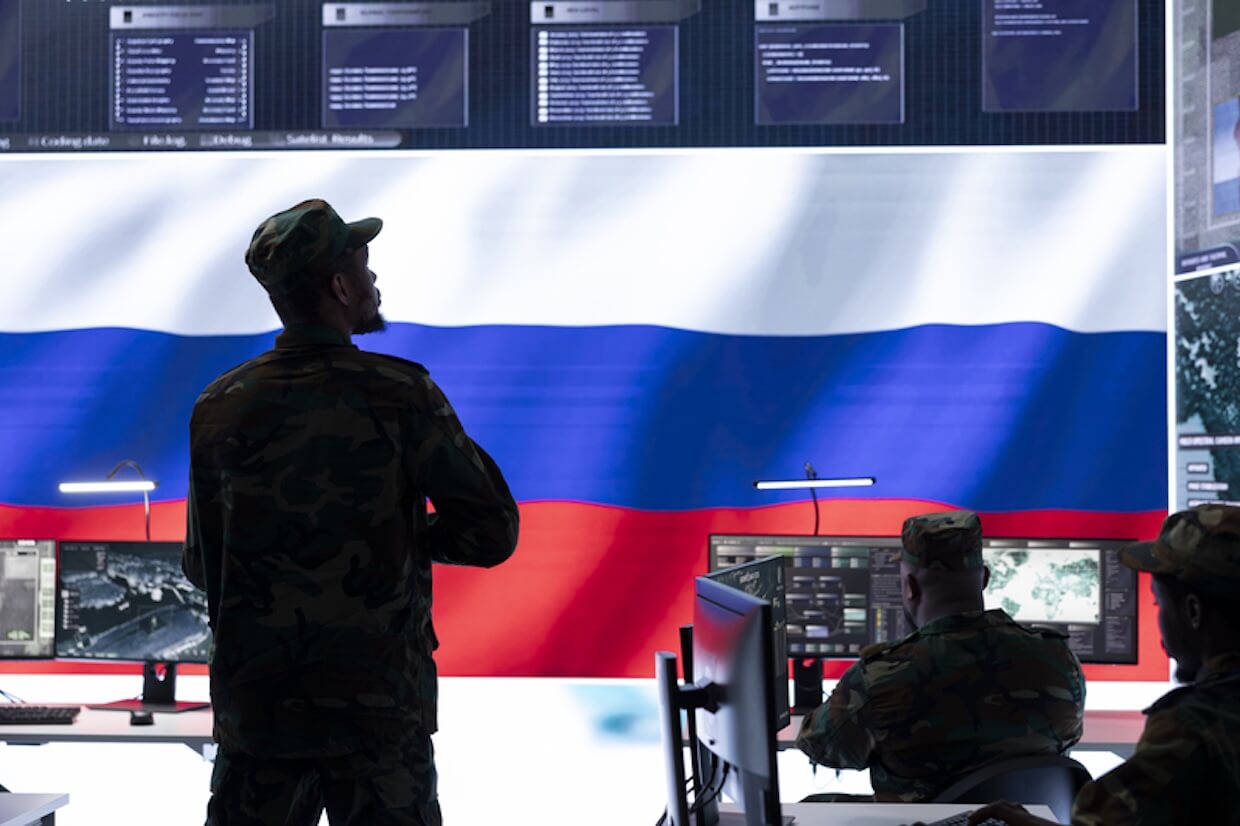
With turnout just above 50%, what does this relative disengagement reveal about the durability of PAS’s mandate, and does persistent electoral apathy risk undermining the legitimacy of Moldova’s democratic consolidation over time?
Dr. Ecaterina Locoman: As I mentioned earlier, yes, the turnout was just over 50%, but this number is not unusually low for Moldova. In fact, compared to some recent elections in the region, 52% is relatively solid. However, you are right that it also signals that a significant portion of the electorate remains disengaged, which has implications for the durability of the ruling party’s mandate to govern over the next four years.
The fact that Maia Sandu’s party won elections for the second time is significant. They secured a clear majority of seats and resisted heavy Russian interference and influence. At the same time, much of their enthusiasm is concentrated during election periods, when the central question is whether the country is moving east or west. This enthusiasm does not always last throughout the full four-year governing period.
Moldovans are frustrated with the slow pace of reforms, the persistence of corruption, and the fact that judicial change has not progressed as quickly as many had hoped. Many voters remain disillusioned with these slow reforms, persistent poverty, and daily economic hardships. For this reason, it is especially important for the governing party to deliver results quickly—both to maintain its stated goal of joining the European Union and to ensure that its policies meet the expectations of the electorate.
In some ways, the Russian presence is acting as a “blessing in disguise.” Without the Russian threat at the border, Moldovan political parties might have been more complacent and less willing to pursue reforms. Because the threat is so close, it creates a greater sense of urgency among both political actors and the population to mobilize and align with the European Union.
What has changed significantly compared to previous elections—particularly over the past decade, since around 2010—is the unprecedented level of symbolic, technical, and financial support the European Union has provided to Maia Sandu and Moldovan political institutions. EU leaders have repeatedly visited Moldova and demonstrated their support, which is unprecedented in the country’s history.
In my own research, I found that since 1991, when Moldova declared independence from the USSR, one of its main foreign policy challenges has been ensuring that the West paid any attention to it at all. For many years, Moldova was on the radar only because of the Transnistrian conflict. As long as things were quiet and stable, there was little engagement. Now, however, Moldovan political elites—especially Maia Sandu—have succeeded in breaking through this indifference and convincing European leaders that Moldova is strategically important to the EU and its security.
Transnationalizing Moldovan Democracy
The diaspora played a decisive role in shaping the outcome. How should we understand this transnationalization of Moldovan democracy, especially given populist narratives at home that cast the diaspora as an illegitimate, “externalized” electorate undermining national sovereignty?
Dr. Ecaterina Locoman: That’s true. I like the expression you used—the transnationalization of Moldovan democracy. The numbers show that 280,000 Moldovans abroad voted in the elections. This is because the governing party recognized that much of their support comes from the diaspora, so they facilitated the voting process abroad. The introduction of mail ballots was a smart and strategic move, because people living in countries like the United States find it much easier to vote by mail than to go in person to Moldovan embassies or consulates. This was an important step, reflecting the fact that domestic political elites understood the crucial role the diaspora plays.
Another important factor is that the diaspora is relatively young. Most of those who have moved abroad are in their 50s, 40s, 30s, and 20s. They maintain very strong links to Moldovan politics and what is happening at home. Many have families in Moldova, so they remain deeply engaged, and I was pleased to see the high level of civic engagement among the diaspora, particularly their efforts to support and promote European integration.
It’s true that the more pro-Russia parties tend to portray the diaspora negatively. I think it was Igor Dodon who, at one point during a previous presidential election, referred to the diaspora as a “parallel electorate,” claiming that they don’t know what’s happening at home, that they live in the West and therefore want the country to join the West. He argued that they are disconnected from domestic realities, which is not true. The links between the diaspora and Moldova remain very strong.
If you visit in the summertime, you can see many young people and young families returning. In the 1990s and early 2000s, before Moldova had a visa-free regime with the EU, many Moldovans tried to work in the EU illegally. They often ended up stuck abroad, unable to return home, and the maximum support they could provide was through remittances.
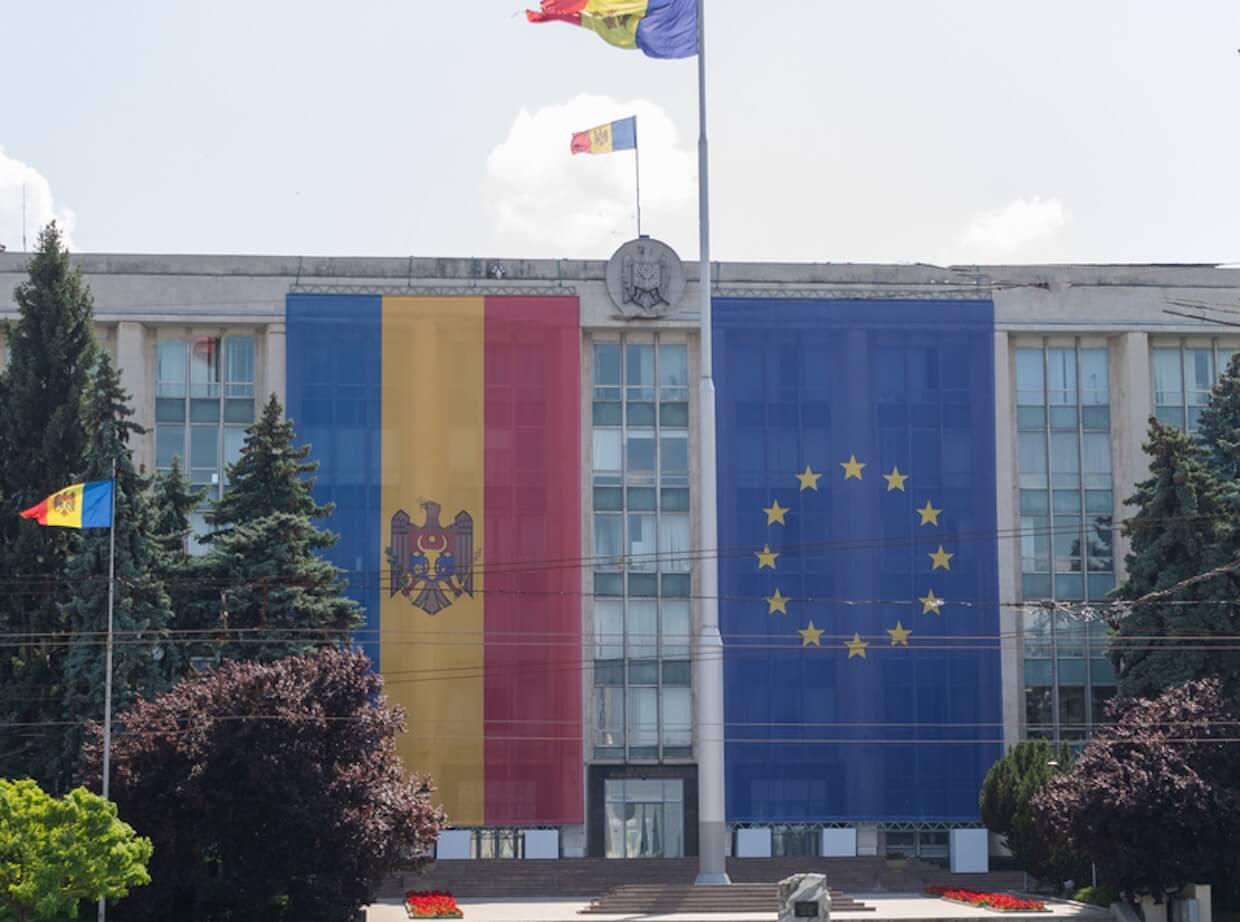
Now, because the EU has introduced a visa-free regime and many Moldovans have been able to obtain Romanian citizenship—thanks to Romania’s revised citizenship law allowing those who can prove family links from the interwar period when Moldova was part of Greater Romania to apply—many people have Romanian passports. This allows them to live and work legally in the EU.
As a result, many young families now live in European countries such as Germany, Belgium, and Great Britain during the year, but they build homes in Moldova, have parents and siblings there, and remain in close contact. So, it is not accurate to argue that the diaspora is disconnected from events at home. In fact, it is very much a part of what is happening domestically. As long as domestic political actors continue to engage the diaspora and maintain these connections, the pro-European movement will hopefully remain strong.
Hybrid Interference: New Tactics, Old Goals
Observers describe Moldova as a “laboratory” for Russia’s hybrid interference. From disinformation to illicit financing, what does the 2025 electoral cycle reveal about the adaptive limits of Moscow’s toolkit of influence?
Dr. Ecaterina Locoman: Yes, we’ve seen new models of influence that Russia has used in the elections. The use of AI and alternative financial methods, like cryptocurrency, for example, is new. They tried to hide financial links by using cryptocurrency, which, in a way, influenced the process. But, this also revealed the limits of Russian influence. I would add a caveat here: Moscow—indeed the Kremlin—is one of the best students of the post-Soviet region. They know the region very well and have people who have studied it in depth. So, I expect that they will learn from their own mistakes and improve their strategies in the next elections. This means that Moldova’s pro-European victory should not be seen as a sign that we can become complacent or self-sufficient. This fight needs to continue. As I said, Moscow is a very good student of the post-Soviet region. They understand the internal realities of these countries. They know the challenges that people face, the domestic weak points, and they try to exploit these to the advantage of their messages and narratives.
At the same time, many of these tools proved ineffective at this point in time because Moldovan institutions—and civil society as well—were more proactive than in past elections. Moldovan institutions learned important lessons from the last presidential elections. Parties engaged in illicit financing were excluded from the ballot, prosecutions were pursued, and the government was much more transparent in communicating about disinformation campaigns. As a result, people were much more aware of what was going on.
While the Russian toolkit has evolved technologically, its effectiveness is limited when met with resilient institutions, rapid countermeasures, and credible alternatives. If we look at one successful formula that worked in Moldova at this moment, I would still be cautious not to declare this the end of Russian interference. Russian influence will remain strong in the region. But what worked was a credible pro-EU message from domestic political parties, coupled with strong and credible support from the EU, which was very important. Additionally, the pro-Russia parties were not as original in their messaging, and the ongoing war in neighboring Ukraine further strengthened the pro-EU camp.
Exploiting Weak Links: Moscow’s Populist Playbook
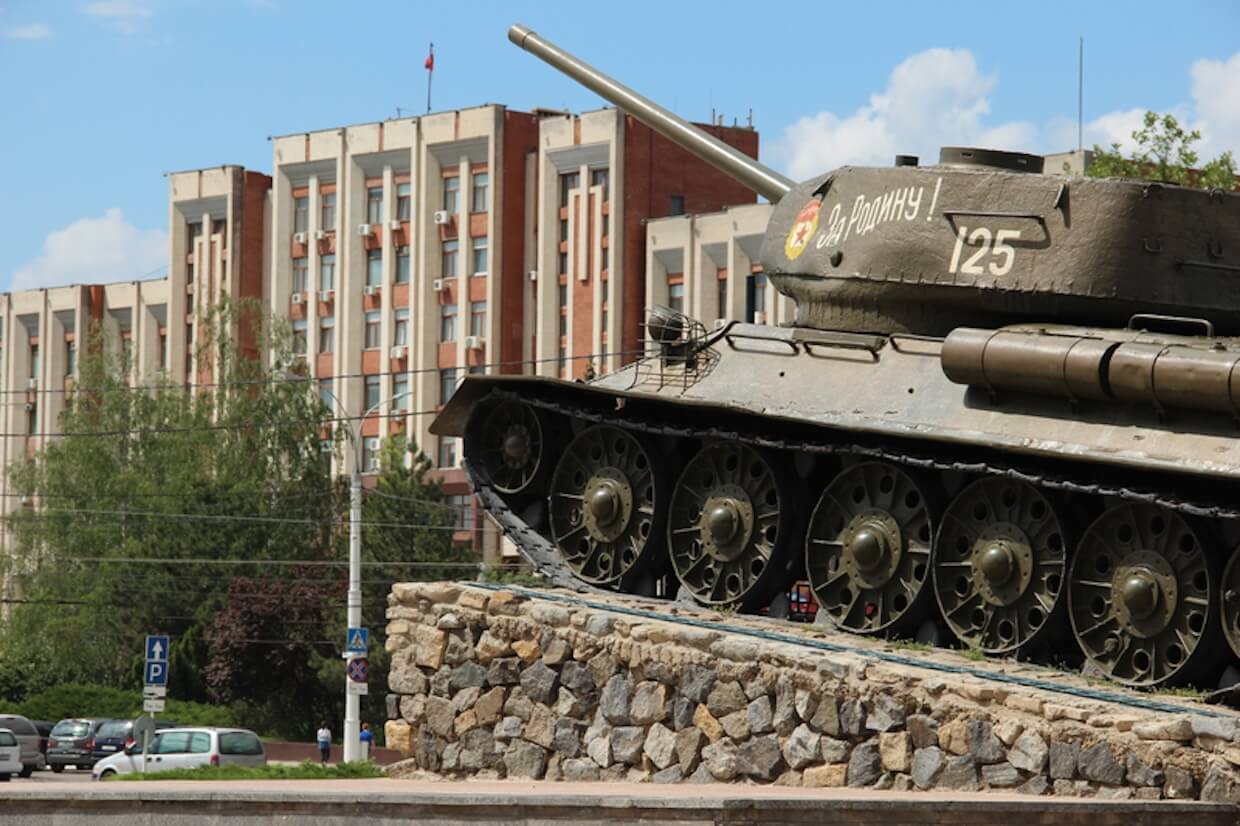
In the light of your research on Russian influence strategies, how do you interpret Moscow’s reliance on populist-style appeals—framing EU integration as a betrayal of sovereignty, invoking fears of war, or portraying elites as “foreign agents”? Does the Moldovan case suggest a recalibration of these tactics compared to Ukraine or Georgia?
Dr. Ecaterina Locoman: What is happening in Moldova, again, links to what I was just saying in response to the previous question. When I think about Georgia, the support for a pro-EU orientation was very strong. Public opinion support was extremely high, but it was not enough. When Russia was able to find a credible, strong domestic political actor, it was able to promote its own interests inside Georgia. What is different in Moldova’s case right now is that there was both a credible pro-EU party and strong public opinion support for the European Union. Now, Russia does not necessarily rely only on populist-style appeals. They know the weaknesses in each of these countries—the weak links—and they try to use those for their own interests. One thing I have noticed is that as long as domestic political elites are smart and strategic in how they frame their political messaging, it matters a lot.
I will give an example. Since Moldova declared independence in 1991, one very big question has been whether the language spoken in Moldova is Romanian or Moldovan. Political campaigns and electoral strategies were often built around this division. More pro-EU, pro-Romanian parties argued that the language is Romanian, while more pro-Russia parties insisted it is Moldovan. In every electoral campaign, these pro-Russia political parties used such narratives to distract voters from real issues like economic problems and corruption.
What happened in the years since Maia Sandu came to power is that the Moldovan constitution was amended to enshrine that the language spoken in Moldova is Romanian. So now, there is no debate about it. Nobody is questioning it anymore. The point I want to make is that as long as domestic political elites manage to settle these kinds of debates—which are not central to everyday life—then it becomes much harder for pro-Russia political actors to exploit them. People’s income levels or quality of life do not depend on whether they call the language Romanian or Moldovan.
When the Russians spot these kinds of differences, they manipulate public opinion and can win. But if domestic political elites can agree and establish clear positions on such issues, it becomes much harder for pro-Russia actors to influence the public. For example, pro-Russia parties have strong backing in the Orthodox Church in Moldova, which is very influential. There were reports that some priests were used by the Kremlin to influence public opinion. But as long as there is clear messaging from mainstream political parties in Moldova that they are not anti-religion, that religion is respected and people are free to practice their faith, then it becomes harder for pro-Russian narratives—often based on fake realities—to take hold.
When people hear credible messages from their own political elites, it becomes much easier for them to discern truth from lies. Similarly, the narrative about war has become much harder for Russia to sell right now. Why? Because they are waging a war in neighboring Ukraine. It is much harder to claim that moving toward the EU will bring war when there is already a war caused by Russia next door. This narrative was more effective in earlier elections, but now, as long as the West continues to support Ukraine and Ukraine withstands the Russian attack, it will be much easier for Moldova to remain strong and maintain its pro-European orientation and stance.
Without Reforms, Western Support Won’t Be Enough
How sustainable is Moldova’s reliance on Western partners for countering hybrid threats, given persistent vulnerabilities such as corruption, weak institutions, and economic hardship?
Dr. Ecaterina Locoman: This is a very good question. I think about it very often. As much as Russian influence may be a blessing in disguise—in the sense that it mobilizes people at home to work hard and pushes political parties to deliver on their promises and act quickly—the support from the European Union, and even from the United States, is the best thing that can happen to Moldova. As long as the EU remains invested in Moldova, we will be able to maintain our pro-European path more easily.
One fear I have is that we might become complacent, assuming that the EU or the West will always come to our rescue and that we can simply continue doing whatever we are doing internally. When I go to Moldova, I often hear people—business people, entrepreneurs—complaining that not much has changed compared to 10 or 15 years ago. Corruption is still rampant. In order to obtain permits to build something, for example, you still need to pay someone in the government. This is unfortunate, and people are aware of it.
My conclusion is that domestic political parties must understand that this is a “make it or break it” moment. If they do not deliver on the promises they have made, it will become much easier for political actors in Moldova who promote Russian interests to regain power. And once that happens, it will be much, much harder to get Moldova out of Russia’s embrace. So, I think it depends very much on the willingness of the ruling party right now, and Maia Sandu, to deliver on the reforms they have promised.
A Temporary Setback, Not a Strategic Defeat
Do Moldova’s elections signal a broader decline in Russia’s ability to project influence across the post-Soviet space, or should Moscow’s defeat here be read as tactical rather than strategic?
Dr. Ecaterina Locoman: As I shared earlier, I do not think this is a Russian defeat in the long term. Russia is very adept at adjusting its messaging and tactics, not only with respect to the post-Soviet region but also to the wider EU region. They will learn from their mistakes and continue to influence domestic politics in Moldova, as much as we might not like it. Even if the political actors they supported did not win as many seats in Parliament as they initially hoped, we can look at the first four years of Maia Sandu’s party in government.
Basically, these previous four years were devoted to crisis management. Yes, it’s true, initially it was the COVID pandemic, but then the war in Ukraine, caused by Russia, turned everything upside down in Moldova. So instead of focusing on judicial reforms and economic development, as the party had initially promised and as Maia Sandu stated, they had to adjust. I think they managed—they were successful in delivering some of the promises made during the electoral campaign—but it was ten times harder.
I expect that Russia will continue to influence domestic politics. It’s part of their strategic goal to regain control over the post-Soviet region, and I don’t think this should be read as a strategic loss. It’s more of a temporary setback, but they will gather their resources again. Therefore, both Moldovan and European Union leaders need to stay on their toes, remain alert, and be careful about the next steps so they are prepared to counteract those measures.
EU Accession: Between Optimism and Doubt
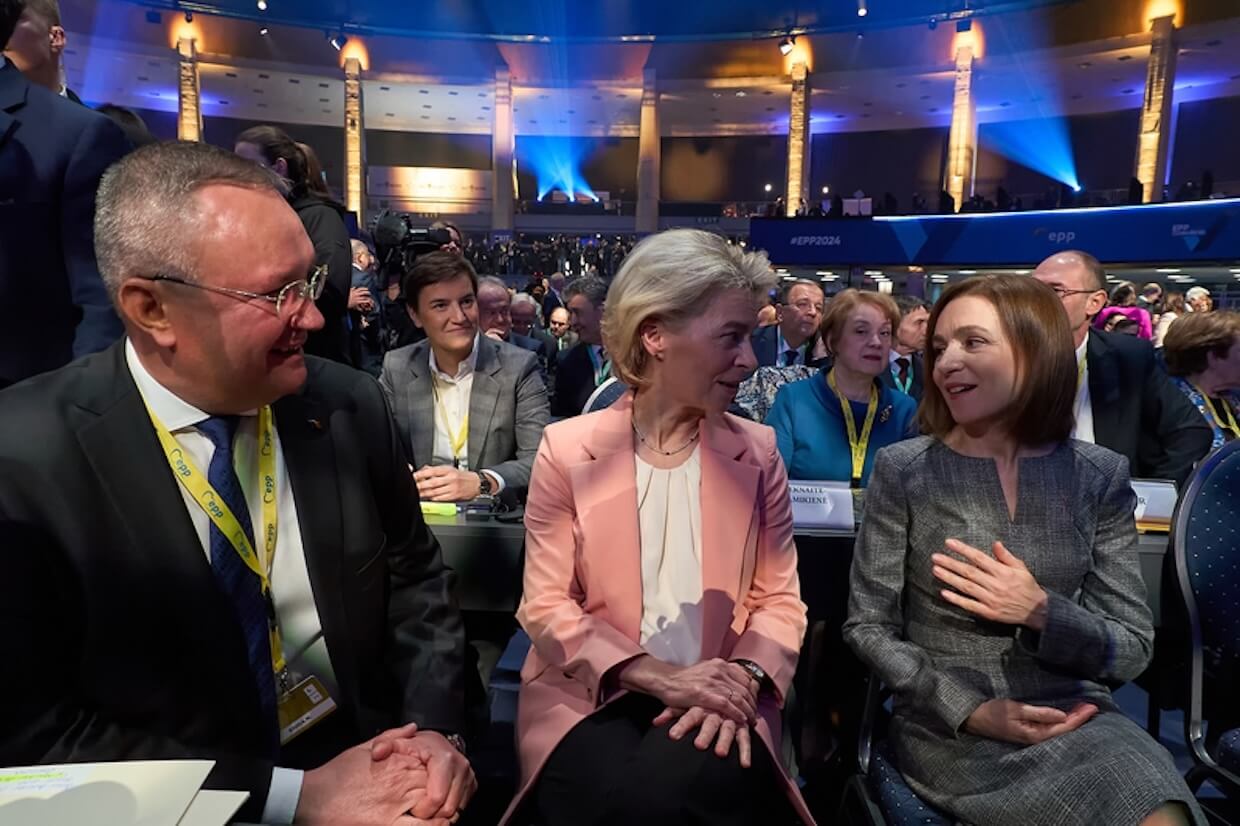
And lastly, Dr. Locoman, President Sandu has tied her mandate to enshrining an “irreversible European path.” How realistic is Moldova’s aim to achieve EU accession by 2030, given the scale of domestic reforms required and potential geopolitical vetoes within the Union?
Dr. Ecaterina Locoman: Recently, Maia Sandu visited Copenhagen. Denmark hosted a major summit with key EU leaders. Ukraine was there, Maia Sandu was there, and there were reports that they were hoping Hungary would be persuaded not to veto the right of Ukraine and Moldova to start accession negotiations. However, Hungary was not persuaded. So the only hope they have right now is that there will be a political change in Budapest, allowing this to move forward.
A lot of the frustration I hear among policymakers in Moldova, when it comes to the EU, is that they are disappointed the European Union decided to put Moldova and Ukraine in the same bucket for European integration. There were hopes that Moldova would be decoupled, that it would go its own way, and Ukraine would go its own way. But the Europeans still seem to favor moving forward together as a group.
A fear I have is that Moldova is much smaller than Ukraine. Yes, domestic reforms need to be done, but as long as there is political will, it is possible to achieve them. I share a bit of the concern raised in the question. I am afraid that if the situation continues as it is now, Moldova might face the same fate as the Western Balkans over the past 20 years. The door was opened for them too, but then they stalled, and no real progress has been made, apart from Croatia joining the EU.
So, I have some doubts—not fear, but doubts—about how quickly the situation can move by 2030. Is this truly realistic? But then again, up until 2022, Moldova had been knocking on the EU’s doors for more than 30 years, asking for candidate status, and the EU kept saying no. And then, in the end, it happened. Yes, it was because of the Russian invasion of Ukraine, and it was unfortunate that this was the trigger, but it happened. So I try to stay optimistic and hope that by 2030, Moldova will be able to join the EU.

